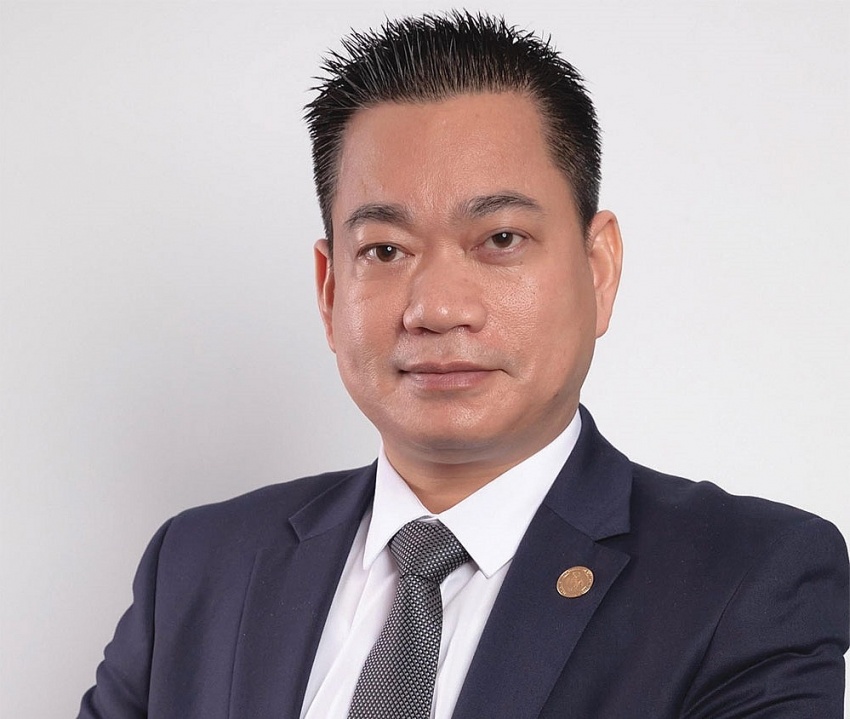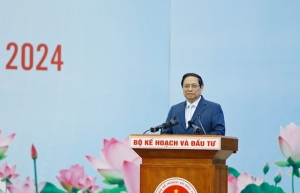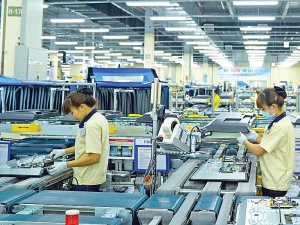Pending issues and predictions for enticing new FDI
 |
| Nguyen Dinh Nam, Founder and CEO, IPA Vietnam |
Along with these achievements, Vietnam saw a surge of high-tech projects, at which about half of projects worth $100 million onwards were registered for electronic spare parts and components as well as the semiconductors sector. In addition, existing eagles continue to reinforce their solid footing with expanded projects worth hundreds of millions, or even billions, of US dollars.
These activities have the contribution of industrial real estate developers, who are more and more methodical in investment promotion activity. They are proactive in participating in business trips abroad with heads of state, government, and localities to connect with potential financial backers. They also implement some promotional programmes by themselves.
In addition, industrial real estate developers such as Vietnam-Singapore Industrial Park, Deep C, KBC, and Viglacera concentrate on training professional, methodical, and experienced investment promotion teams and contribute significantly to overall success in attracting overseas funding in Vietnam.
The role of these teams is important because, in many localities, the organisational structure functions and tasks of investment promotion units are unclear, partly because funding and human resources for implementing such activities are still limited, so effectiveness is still quite modest.
On the contrary, these teams at industrial real estate developers have the advantage of a wide network of partners and customers and are fully proactive in funding and other resources to pursue and attract many specific projects.
However, several situations also contribute to limitation in foreign-invested capital in Vietnam. Firstly, funding costs are increasing drastically, especially in satellite localities of Hanoi and Ho Chi Minh City. For unskilled workers, the average salary increases by an average of 7 per cent per year, or even by as much as 10 per cent in some places in the capital.
Industrial land rental prices have also escalated rapidly, with an increase of up to 30 per cent in the northern region and 15 per cent in the south. These parameters show that Vietnam’s investment costs are no longer as attractive as in previous years, having a direct impact on plans and profits.
In addition, the capacity of the supporting industry and the domestic supply chain is still modest and there is a lack of connection between units within provinces and regions. This limitation also affects the decision-making of investors, especially those in the US, Europe, Japan, and other countries far from Vietnam.
Not being able to find suitable domestic suppliers also means that investment costs increase when having to import equipment and components from other markets into Vietnam to complete the end product. As a result, several plans were halted or transferred to other countries because Vietnam does not have suitable suppliers.
Another factor is the slow energy transition. According to data from VinaCapital, Vietnam’s renewable energy currently accounts for about 27 per cent of total installed capacity and 12 per cent of electricity production. Meanwhile, according to Vietnam Electricity (EVN), Vietnam’s electricity demand will still increase by 8.5 per cent annually in the next five years. Meanwhile, reports from the Ministry of Industry and Trade and EVN forecast that in extreme weather situations, the north may continue to lack electricity in 2024.
However, in 2024, with outstanding advantages of political stability, deep international integration, young and abundant labour force, and competitive costs, Vietnam may continue to be one of the top destinations for global investors.
There may be a shift of small- and medium-sized supporting enterprises in electronic spare parts and components and semiconductors from nearby markets. Although Japanese and South Korean investors have restarted, due to internal economic problems, overseas activities cannot yet take place as strongly as before.
The investment plans of American and European corporations also did not take place immediately because the economic picture was still quite gloomy. According to forecasts from the European Central Bank, more positive signs will only appear in the latter months of 2024.
 | Ceremony to toast MPI's achievements “Surpassing oneself is challenging, but the Ministry of Planning and Investment (MPI) has done it. I am sure it will continue to do it better,” Prime Minister Pham Minh Chinh proudly stated at the summarising conference on January 11. |
 | Vietnam's FDI story continues to blossom Vietnam's appeal to foreign investors continued to improve last year, as did the quality of the foreign direct investment (FDI) the country attracted, according to a VinaCapital report that was released on January 9. |
What the stars mean:
★ Poor ★ ★ Promising ★★★ Good ★★★★ Very good ★★★★★ Exceptional
 Tag:
Tag:
Related Contents
Latest News
More News
- Hermes joins Long Thanh cargo terminal development (February 04, 2026 | 15:59)
- SCG enhances production and distribution in Vietnam (February 04, 2026 | 08:00)
- UNIVACCO strengthens Asia expansion with Vietnam facility (February 03, 2026 | 08:00)
- Cai Mep Ha Port project wins approval with $1.95bn investment (February 02, 2026 | 16:17)
- Repositioning Vietnam in Asia’s manufacturing race (February 02, 2026 | 16:00)
- Manufacturing growth remains solid in early 2026 (February 02, 2026 | 15:28)
- Navigating venture capital trends across the continent (February 02, 2026 | 14:00)
- Motivations to achieve high growth (February 02, 2026 | 11:00)
- Capacity and regulations among British areas of expertise in IFCs (February 02, 2026 | 09:09)
- Transition underway in German investment across Vietnam (February 02, 2026 | 08:00)




















 Mobile Version
Mobile Version